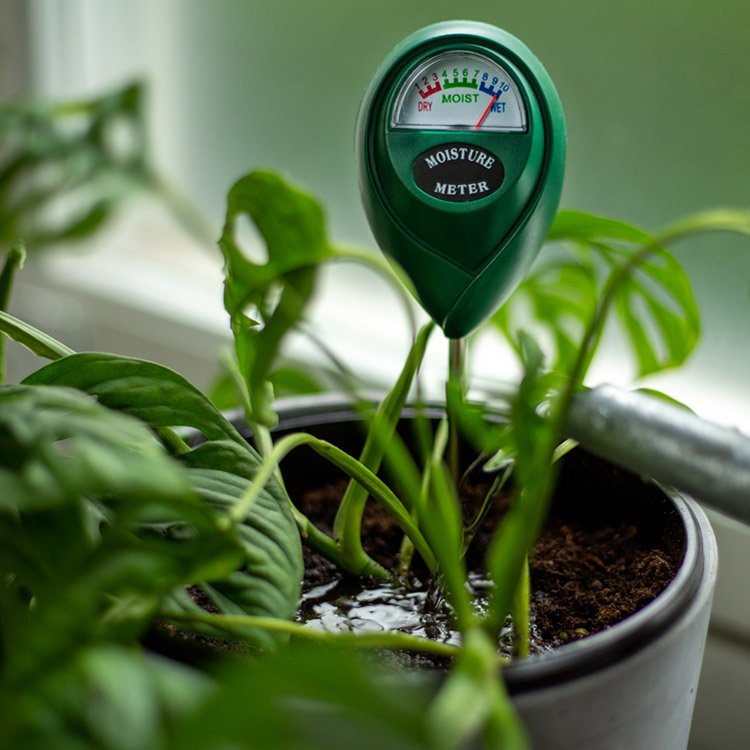Leading 10 Benefits of Using a Moisture Meter for Accurate Measurements in Your Home
Leading 10 Benefits of Using a Moisture Meter for Accurate Measurements in Your Home
Blog Article
The Ultimate Overview to Wetness Meters: A Comprehensive Introduction and Just How They Can Save You Cash
In the realm of building upkeep, construction, and different sectors, the importance of accurately gauging moisture degrees can not be overemphasized. Moisture meters act as vital tools in finding and keeping an eye on moisture material in materials, aiding in stopping costly damages and guaranteeing the quality of items. Comprehending the subtleties of various types of moisture meters, their applications, and the potential cost-saving benefits they supply can be a game-changer for organizations and specialists alike. Uncovering just how these tools can not just streamline processes yet additionally contribute to economic savings is a trip worth starting.
Sorts Of Wetness Meters
Different sorts of dampness meters are readily available for various applications in various markets. One typical type is the pin-type moisture meter, which measures the electric resistance between 2 pins put into a product. This kind appropriates for wood, drywall, and various other building products. Pinless dampness meters, on the various other hand, usage electro-magnetic sensing unit plates to check a bigger area without causing damages to the product's surface area. Moisture Meter. These meters are excellent for swiftly assessing dampness degrees in huge areas such as walls and floorings.

Infrared moisture meters measure the thermal buildings of a material to determine its dampness material non-invasively, making them beneficial for applications where pin or pinless meters might not be suitable. Comprehending the different kinds of dampness meters offered can aid markets choose the most appropriate tool for their details wetness measurement needs.

Advantages of Using Wetness Meters
Moisture meters supply invaluable benefits in accurately keeping track of and assessing moisture levels in varied products and environments (Moisture Meter). One of the key advantages of using dampness meters is the prevention of possible damages triggered by excess dampness. By finding and resolving high moisture degrees early, wetness meters aid to stop mold growth, rot, and architectural damages in structures, conserving both money and time on repair services. In addition, wetness meters aid in making certain the high quality of products throughout building or production processes. By properly measuring dampness web content, these devices help keep the honesty of timber, drywall, concrete, and various other materials, reducing the threat of failures or defects.
Additionally, using moisture meters can result in enhanced power performance. By recognizing locations with high dampness degrees, such as leaks or poor insulation, adjustments can be made to enhance energy preservation and decrease energy costs. In farming settings, dampness meters play a crucial function in maximizing crop yields by enabling farmers to monitor dirt wetness levels and make notified watering decisions. In general, the advantages of utilizing moisture meters cover throughout different industries, offering affordable remedies and promoting much better top quality control practices.
How to Select the Right Wetness Meter
When picking a wetness meter, it's necessary to guarantee that the meter is ideal for the certain material you will be screening. Different products have varying electrical residential properties that can affect moisture analyses, so choosing a meter created for your material is vital for accurate outcomes. By carefully examining these variables, you can select a wetness meter that satisfies your requirements and offers exact dampness dimensions for your jobs.
Proper Methods for Wetness Meter Usage

Expense Savings Via Moisture Meter Applications
How can the calculated utilization of moisture meters lead to considerable expense financial savings across numerous markets? In the agriculture industry, moisture meters aid in establishing the optimal time for harvesting plants, avoiding over-drying or excess moisture that can influence the last item's top quality.
Likewise, in building, moisture meters help avoid pricey damages by detecting dampness levels in building materials, such as wood or concrete, which can bring about architectural problems otherwise addressed promptly. By identifying trouble locations early on, professionals can take restorative steps to avoid extensive repairs or substitutes, ultimately conserving time and cash.
Moreover, in the food handling sector, wetness meters are important for checking item high quality and making sure conformity with safety and security laws. By precisely gauging moisture content in foodstuff, manufacturers can prevent putridity, preserve freshness, and minimize waste, resulting in substantial cost financial savings. In general, the critical application of moisture meters is a valuable investment that can bring about substantial price decreases and boosted performance throughout different industries.
Final Thought
To conclude, wetness meters are important tools for gauging and discovering dampness levels in various materials. By making use of the appropriate dampness meter and adhering to appropriate techniques, individuals can efficiently stop costly problems brought on by excess dampness. Investing in a high quality wetness meter can cause significant expense financial savings over time by identifying possible issues early on and making it possible for prompt removal. official site Ultimately, wetness meters are necessary tools for keeping the integrity and longevity of frameworks and materials.
Dampness meters offer as indispensable devices in spotting and checking moisture content in materials, helping in avoiding costly damages and making certain the quality of products. Infrared wetness meters gauge the thermal properties of a product to determine its moisture web content non-invasively, making them useful for applications where pin or pinless meters might not be suitable.Moisture meters provide important benefits in accurately keeping track of and analyzing wetness levels in diverse products and environments. In farming settings, dampness meters play a crucial duty in maximizing crop yields by making it possible for farmers to check dirt dampness degrees and make informed watering choices.In final thought, dampness meters are useful tools for measuring and spotting moisture degrees in pop over to these guys different products.
Report this page